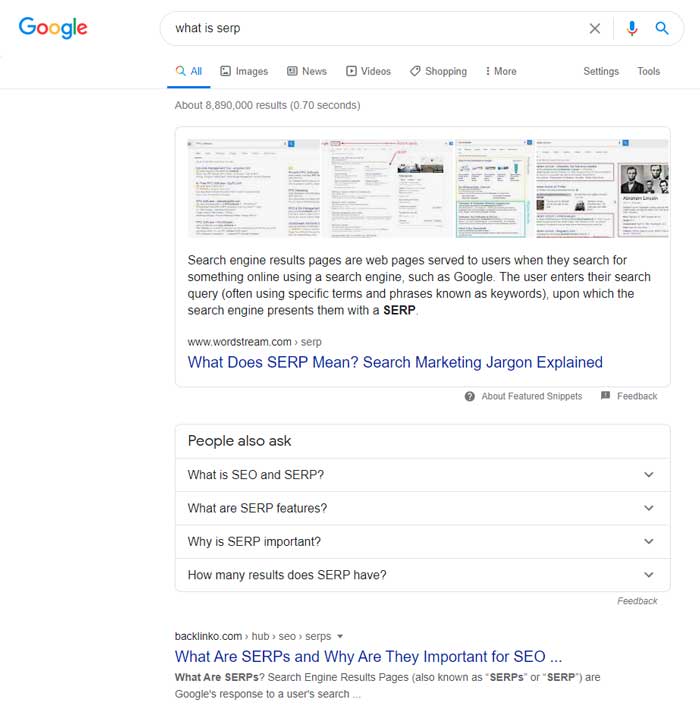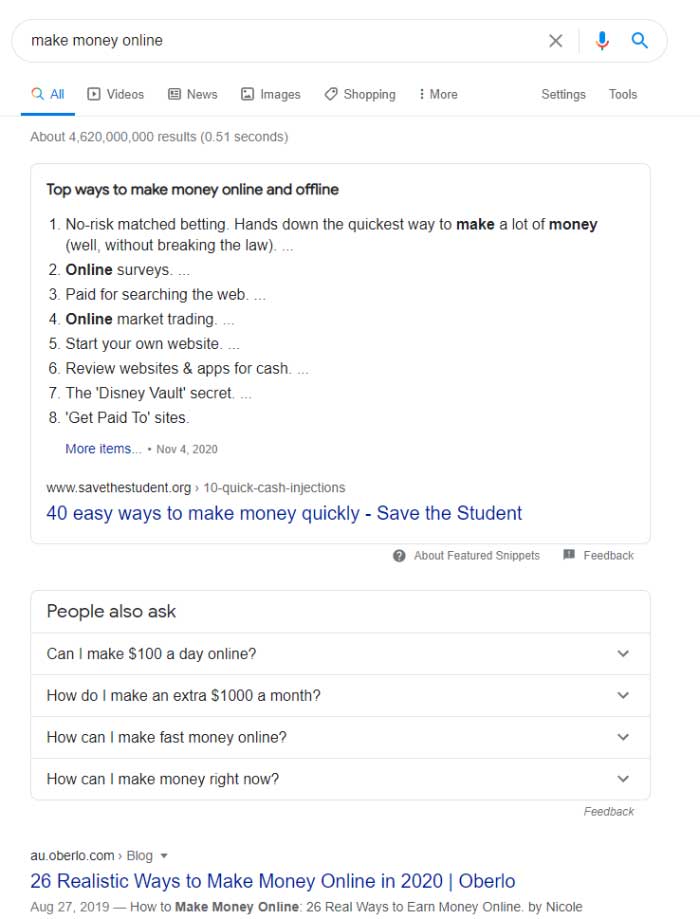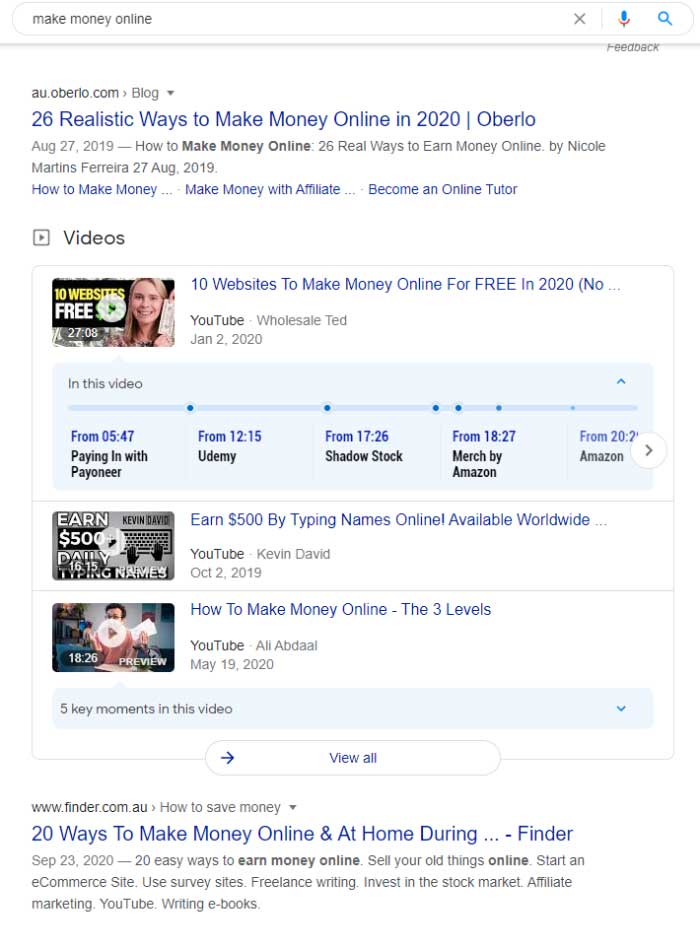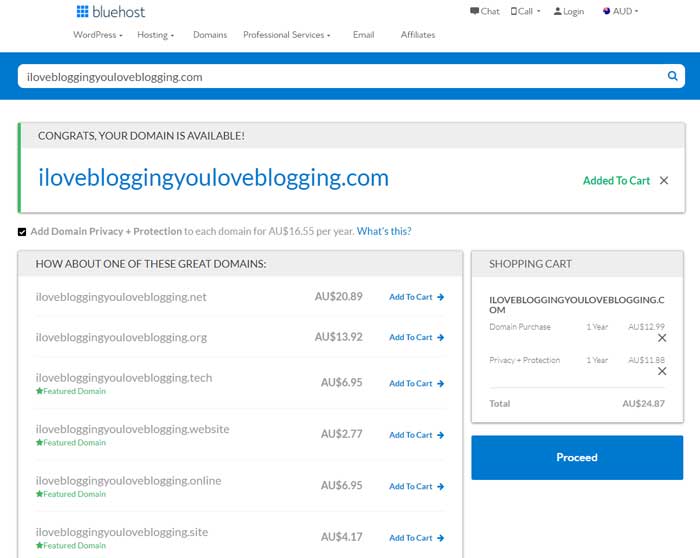Choosing a name for a blog can take someone like me days or weeks to decide.
And some just don’t even give it a second thought.
There is also SEO that you should leverage for a cost-effective way of getting traffic.
What is in a blog name?
What is SEO?
Is it essential to choose a blog name that is SEO friendly?
Let’s get into the nitty-gritty on how to name a blog.
How to pick a domain name for your blog and SEO
What the heck is an SEO anyway?
SEO is a process to rank a website higher in Google SERP.
Woah! SERP?
SERP stands for search engine results page, basically what you see after you search for something.

Now that we got the hard part out of the way, here’s how to come up with a name for your blog that is search engine optimized.
We’ll also discuss the full keywords domain name.
How to choose a name for your blog with keywords
Gone are the days of naming your blog using full domain keywords and ranking at the top of the search query.
What the hell is this guy talking about again?
A full domain keyword is using the full keywords as your domain name. For example, “makemoneyblogging.com.” In this case, make money blogging is the keyword.
So, when someone is searching for make money blogging, makemoneyblogging.com would show up first in the SERP.
But that was way back then. Google knew about this tactic and fixed things up a little bit. It’s still a ranking signal, but it doesn’t hold much weight nowadays.
Try searching for, make money online on Google, and you’ll see the following when you scroll down the results page:



As you can see, not even one website has the name containing any of the keywords, “make money blogging.”
So, why should you even bother naming your website with a partial keyword?
You don’t have to. Just look at the websites appearing on the first page of Google for the term, ‘make money online,” don’t contain any of the keywords.
However, a keyword in the domain name can describe what your site is about. More on this later.
Blog name ideas for SEO
Consider the following before naming your blog:
- The domain name should be as short as possible. Memorable and easy to type.
- Keywords help people understand what your site is about right away.
- If you are targeting a specific location, consider adding it to your domain name.
- Brandable.
- Use your name.
- Consider other endings, other than dot com.
1. Short domain name
Make your blog name short and memorable.
When your blog is easy to remember, buyers can quickly recall your blog name.
Don’t give your potential customers an obstacle by making them type a long blog name. Keep it as short as possible—for example, Coke, Sprite, Google, Blogzn. I had to add it in there.
2. Keywords in the blog name
Google’s John Mueller says that keywords in the domain name are not a ranking factor. I disagree.
Having keywords in your domain name tells what your site is all about. It also gives your site an authority boost in the reader’s eye.
What do I mean?
Imagine searching for the term “how to lose weight.” The top two results are with domain names of Tech Goulash and Healthful Papa. Would you instead click on a site with a domain name of Tech Goulash or Healthful Papa when you want to lose weight?
The click-through rates get affected, and CTR is a clear ranking factor. When your CTR is higher than the first one, this tells Google that more people prefer going to your site than the first, thus ranking you higher in SERP.
The keywords in a domain name can still impact SEO, although indirectly.
3. Location in a blog name
Having your location in your blog name can filter out customers that are not in the area. If your target audience is only in a specific place, adding your location in the blog name can only give you high-quality traffic.
I was looking for a mechanic in my area (Blogtown) because I don’t want to travel that far.
I’d click on a mechanic with a “Blogtown” in its blog name.
Similarly, if you’re a Real Estate agent and would love to attract people that want to live in your service area, adding your specific location can tell people you specialize in the area they want.
4. Brandable
Branding is a long game. It takes years to build a brand and a mere second to tear it down.
Brands don’t need a keyword in their domain name. But relies on marketing to get their name on everyone’s mind.
Examples of successful brands are TAG Heuer, Apple, Amazon, and Nike.
Just mention their name, and you’ll know what they offer. TAG are luxury watches, Apple exudes perfection, and not for the cheap.
Amazon is the leading online retailer, and Nike says athlete and performance.
Branding can help separate you from the rest of the pack.
Hypothetically speaking, let’s say you are looking for your next pair of shoes. You go to your local footlocker store and see two identical shoes.
They are manufactured in the same facility, use the same materials, are priced similar, and look exactly the same. The only difference is that one shoe is called Nike, and the other is called Funkypants.
Which one would you buy?
5. Other TLDs
TLD is an acronym for a top-level domain. Examples of top-level domains are .com .net .edu. While there are many other extensions, some could be perceived as spammy or low quality by users.
Dot com is the most common and accepted generally by the public. To be on the safe side, choose a .com extension.
Because .com extensions are popular, you may not get your perfect blog name. That’s when you should consider other TLDs.
Blog name unavailable?
So you came up with a name for your blog, but is it available?
I’ve used many domain name checkers, and Bluehost is the best so far. It’s fast, easy, and simple to use.
Disclosure: We are a Bluehost affiliate. We earn a commission when you sign up using the following links. This is at no additional cost to you.
Once you know your blog name or have a fair idea, go to Bluehost.com. Click on the domains tab, and you should be taken to the following screen:

Type in your blog’s name and see if they are available.
When you get an available domain name, you get a screen like this.

If your domain is unavailable, try adding verbs.
Add action verbs
Below are examples of verbs you can use:
| Read Ride Run Send Shout Sing Sit Smile Spend Stand Talk Think Throw Touch Turn Visit Vote Wait Walk Write Yell | Act Agree Arrive Ask Bake Bring Build Buy Call Climb Close Come Cry Dance Dream Drink Eat Enter Exit Fall Fix | Give Go Grab Help Hit Hop Insult Joke Jump Kick Laugh Leave Lift Listen Make March Move Nod Open Play Push |
Consider cc top-level domains
If your target audience is not in the US, try choosing the country’s top-level domain. Country top-level domain includes .com.au (Australia), .co.uk (UK), or .de (Germany).
Abbreviate your business name
Abbreviating your business name may not be pronounceable such as True Safety Driving Center.

But, once you get the branding and SEO right, you won’t have to worry about people going to the wrong website.
Take a step back
If the above methods still don’t get you that perfect blog name, take a step back. Take out the old pen and paper and brainstorm some more.
The worst thing you can do is settle for something mediocre because it’s available. I’ve done that numerous times, and it’s not a good feeling.
You never know, with a fresh mind, you might come up with an even better domain name than your previous idea.
Conclusion
Since Google ignores full keyword domain names, you should name your blog with a catchy name, easy to remember, and short to type.
You can also consider putting a partial keyword in the name of your blog. A partial keyword can tell a browser what your site is about without reading your about page.
Even if Google says they don’t emphasize the domain name, it can affect your SEO with the click-through rate.
You see, the higher your click-through rate compared to the competition tells Google that your blog is better.
Click-through rate is just one of the ranking factors Google uses to determine how good is a website.
Relevancy, good user experience, dwell time, bounce rate are just some of the signals that Google uses.
So, naming your blog doesn’t have to involve a keyword. Many sites are ranking on the first page of Google without using their main keyword.
Even ryrob.com is ranking on Google’s first page with the term “how to name your blog.”
What the heck is a ryrob?
Step by step guide to blogging:

As a dedicated SEO professional, I help businesses improve their online visibility and attract more customers through search engine optimization. Whether you’re a small local business or a large corporation, I can help improve your search rankings, drive more traffic to your website, and ultimately grow your business.
Christian Tanobey

